Goheal: Has Capital Shifted from Resource Grab to Governance Battle?
"If the tools are not good, the work will not be refined; if the politics is not good, the people will not be harmonious." The ancients have long said the importance of governance. Whether it is governing the country, managing the government or managing the enterprise, once there is a problem with "governance", even if the resources are abundant and the financial resources are strong, it will be difficult to support long-term development.
American Goheal M&A Group
In the past ten years, the capital market has been like a game of "resource hunters": whoever can take high-quality assets, obtain financing ammunition, and merge and acquire can stand at the peak of market value. But today, this script is obviously no longer popular - from the new rules for merger and reorganization supervision, to high-frequency inquiry letters, to the collective transformation of the "gatekeeper" role, the market's requirements for listed companies have shifted from "how many resources do you have" to "can you manage the resources well."
The underlying logic of capital operation is switching from "asset allocation" to "governance capability shaping."
Goheal pointed out in his latest capital trend report: "The golden age of competing for resources has ended, and the silver age of competing for governance has just begun." Whether a company can adapt to this switch determines whether it will become a king or a discarded child in the next capital cycle.
Past games: Whoever grabs resources will increase the market value
Do you still remember the wave of mergers and acquisitions from 2015 to 2025? The capital operation of that era was a "resource arms race" - cross-border restructuring, backdoor listing, PE relay, gambling agreements, valuation explosions... What kind of fire is what.
Film and television companies acquire game companies, steel companies cross-border buy education, and even socks sellers have to engage in VR - in that resource carnival, whoever acquires more and accumulates assets faster can instantly become popular and become the darling of market value. Many companies can achieve a surge as long as they dare to tell a story, make a package, and support a valuation.
Goheal warned at the time: "Enterprises that rely too much on resource allocation and ignore governance structure will eventually expose their foundations when liquidity recedes." As a result, we see that the bigger the story, the heavier the fall; the higher the valuation, the more severe the collapse. After the bubble of multiple star projects burst, investors lost all their money, and supervision tightened accordingly.
The tightening of supervision is not to suppress capital operations, but to guide them towards "orderly coordination" rather than "chaotic piling".
A new script is on the stage: who can manage resources well, who can allocate capital
Entering 2024, the signal of regulatory "turn" has been very clear. The key points are two words: penetrating governance and penetrating responsibility.
What is penetrating governance? It means that you can't just look at whether you have "acquired a technology company" on the surface, but whether you have integrated, whether you have formed a governance closed loop, and whether you have formed strategic synergy. Especially at key nodes such as changes in controlling rights, backdoor restructuring, and asset injection, the focus of inquiries is no longer "what did you buy", but "how do you manage" and "how do you integrate".
The capital market's requirements for "governance capabilities" are becoming as "hardcore" as financial indicators.
What does this change mean? This means that you can no longer rely on "telling a good story" to pass the review. You must have a governance system that "makes sense logically", "can run a model", "can integrate culture", and "can build a mechanism". When Goheal provided strategic planning for a state-owned enterprise to acquire a technology platform company, he included "governance interaction mechanism modeling" as part of the M&A assessment, and no longer regarded governance as a "post-processing" after the merger, but as the "core focus" of the early due diligence.
Governance has become a "precondition" for the success of mergers and acquisitions.
Is governance boring? No. It is the soil for capital to "bloom and bear fruit"
Many people have a headache when they hear "governance": Isn't this just the company's articles of association, the operation of the three meetings, and information disclosure? These do not sound as sexy as "mergers and acquisitions", "leverage", and "betting". But it is precisely these "seemingly insignificant" governance details that are becoming the "final touch" for whether listed companies can play the capital game.
We have seen that some companies spend a lot of money to acquire high-quality assets, but because of unbalanced governance, the team of subsidiaries leaves, synergy fails, and valuation collapses, directly dragging the entire parent company into the quagmire. For other companies, even if the assets they acquire are not "highlight projects", they can "take root and sprout" in the parent company through governance nesting, incentive mechanism binding, and data interface connection, generating synergistic benefits.
Is governance boring? No, it is the fertile soil for capital to "take root".
Only a company with sound governance can retain key talents, connect information islands, respond to regulatory challenges, and more importantly, tell a "self-consistent future story" in the capital market. What the capital market pays more and more attention to is not how beautiful your story is, but whether your logic can run through.
Goheal Case Record: From Governance First to Capital Efficiency
In a recent M&A project completed by Goheal, the acquirer is a traditional company that has been wandering in the energy track for many years, and the target is a new energy digital operation company.
Under the traditional gameplay, this type of M&A usually focuses on asset valuation, technology transformation, and short-term profit expectations. But the strategy of the Goheal team is the opposite - giving priority to designing a "governance integration architecture".
As soon as the project started, Goheal organized the teams of both sides to conduct a "cultural synergy test" to evaluate the probability of synergy after the merger and acquisition through structured questionnaires and data simulations; at the same time, a "synergy promotion responsibility system" was established, and the key milestones of governance integration within 6 months after the merger and acquisition were listed in the agreement, and a reward mechanism was established; the "governance radar" system was also launched simultaneously to give early warnings for synergy resistance points.
As a result, after the successful completion of the transaction, the target company not only did not "fall behind", but was the first in the group to achieve positive profitability. The entire capital market also gave positive feedback. The stock price of the listed company rose by 18.4% within 90 days after the merger and acquisition, far higher than the industry average.
Governance is no longer a "backstage" matter, but a "value amplifier" at the front desk.
From competing for assets to competing for governance, it is inevitable and also a rebirth.
If the capital market before 2025 is more like a bayonet melee, the one with more resources and faster actions will win; then the capital market after 2024 is more like an ensemble competition. Whoever can coordinate the "instruments inside and outside the company" can play a song that impresses capital.
Capital is tired of the old script of "packaging high-quality assets". They want to see "how to make assets alive", and governance is precisely the key to this "aliveness".
As Goheal said: "Governance is not the "institutional shackles" that restrict the development of enterprises, but the "invisible wings" that allow enterprises to run longer and fly more steadily."
You can continue to chase hot spots, but if you ignore governance, you will eventually be eliminated by the market; you can also steadily optimize governance. When the hot money ebbs, you may be the only one still wearing a "capital life jacket".
Epilogue: Supervision is changing, capital is changing, are you ready to change?
Recently, a leading company’s stock price plummeted and its market value evaporated by more than 10 billion yuan due to poor governance and infighting in the board of directors; another low-key state-owned enterprise received increased holdings from northbound funds for three consecutive quarters due to the introduction of governance mechanisms and ESG systems.
Everyone can see that the wind has changed. The capital operation of this era is about "structural strength", "governance strength" and "integration strength". It is no longer "whoever rushes faster wins", but "whoever can hold steady will laugh last".
So the question is:
Is your corporate governance structure a decoration or a real operation?
Is your M&A plan "rushing" or "integration"?
Is your capital story supported by stacking assets or governance penetration?
Don't underestimate these issues, they may determine the life and death of your next round of capital operation.
Goheal Group
Welcome to share your views in the comment area and discuss the "governance way" of capital operation in the new era-the future belongs to the governors, and also to platform-type enterprises that can enable capital to "self-govern".
[About Goheal] Goheal is a leading investment holding company focusing on global mergers and acquisitions. It has deep roots in the three core business areas of acquisition of controlling rights of listed companies, mergers and acquisitions of listed companies, and capital operations of listed companies. With its profound professional strength and rich experience, it provides companies with full life cycle services from mergers and acquisitions to restructuring and capital operations, aiming to maximize corporate value and achieve long-term benefit growth.


